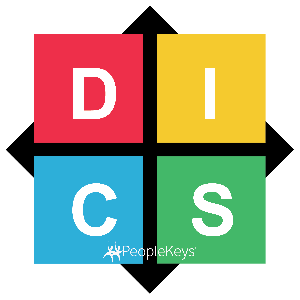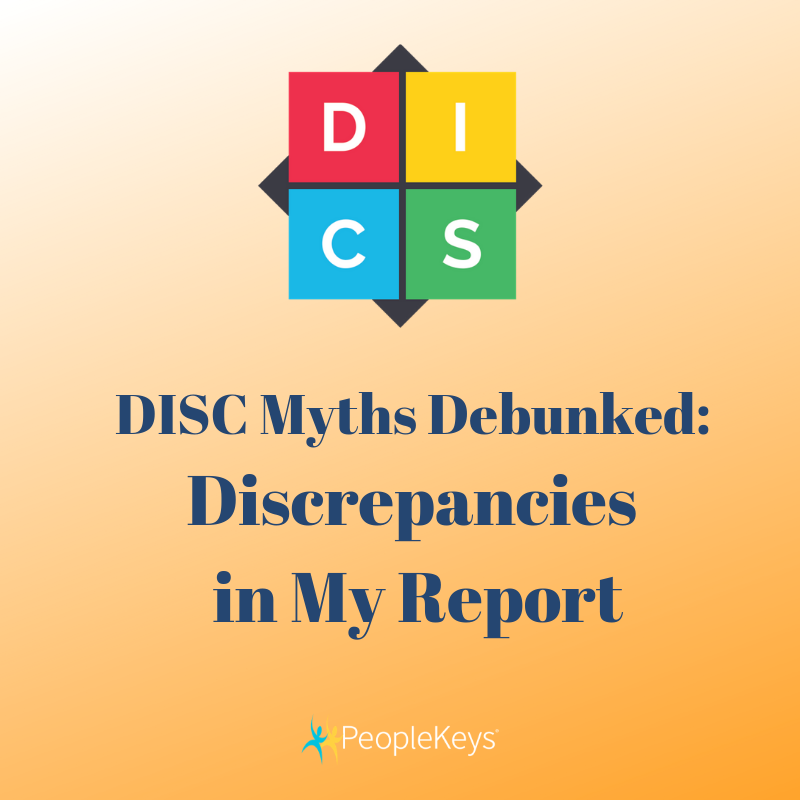
Tips for Dealing with a Dominant Boss
There are advantages to having different personality types in positions of authority. Each personality style brings specific assets to leadership, and every style has the potential to make an excellent boss. The I style personalities make for bosses who are capable of encouraging and motivating their employees. They are team-oriented and fun, and their optimism is downright contagious. You will love going to work if you have an I style boss.
The S style people are team-oriented and appreciate consensus. If your boss has an S style personality, you will feel supported and respected, and you can be reassured that all team members input will be included in decisions, leading to a cohesive and practical approach. In an S style workplace, you and your team will be very loyal to one another, and workplace morale will tend to be relatively free of conflict. Additionally, you will feel a sense of security within this workplace, which can improve productivity.
The C style boss excels at analyzing problems, doing the research, and generating the best possible solutions. The C style boss will be thorough, reliable, and pragmatic. With a C at the lead, you can be certain that your boss will never make a decision on a whim or based off of inaccurate information and then leave you to deal with the repercussions. A C style boss will always work hard to come up with a solution that makes sense, and then all you need to do is follow their lead.
The D style Boss also has a lot of potential to make an excellent leader. They are great in a crisis, and they are determined and persistent and solutions-oriented. The active and task-oriented D style personality is a style that is very decisive, which may lead them to crave a position where their assets can be utilized. A D style personality is competitive, both with themselves and others. They excel at meeting goals, and if their goal is to rise to the tops of the ranks, they are good at this, too.
The D style personality is active and task-oriented. They seek results, and they are afraid of being taken advantage of. These people are decisive, and they move quickly into action. They excel at seeing the whole picture, but their focus is typically on the bottom line. They don’t want to be bothered by too many details. If this sounds your boss, please read on to see our DISC based guide to handling your Dominant style boss.
D Bosses:
These bosses tend to be autocratic, meaning that they might make a decision without taking other people’s ideas into account. They make a decision about what needs to be done to address a specific problem and delegate that task to you. They probably won’t follow this delegation up with a lot of procedural details, but they will expect you to figure these details out for yourself. And they want you to get it right the first time. They are active, and they don’t want to enumerate all of the little details to you (that would be a C boss). D bosses just want to get things done. They live in fear of being taken advantage of, so they attempt to control situations to avoid having this fear come to fruition. They are excellent negotiators. They will be very forward-focused and will need you to prove your worth. They love a challenge and are highly competitive. They like to delegate and will rarely take on daily nitty gritty tasks unless necessary. They are more “big picture" oriented. The D style boss operates very well in a crisis. Did something go awry at the last minute? These are the bosses that thrive in this context.
Tips for dealing with a D-style boss:
- Bring your boss information if they need to make a decision. They want to make a decision quickly, so don’t inundate them with details or emotional pleas. With that being said, be sure to be confident and speak up if you really feel strongly about a subject. A D boss is unlikely to ask you for your opinion, so you will need to volunteer it. (This might be kind of challenging for passive personalities like Ss and Cs, but your boss will respect you for your confidence.)
- Establish deadlines as a team. A D boss wants to see results, and they want to see them quickly. Sometimes that might mean they set rigorous deadlines that are, shall we say, less than plausible. Help your boss out by helping them to understand that you, too, value getting things done. But you might have a quote that is more reasonable. Stick to this quote if you feel strongly about how realistic it is.
- With that being said, don’t focus too much on the problems. Ds are more solutions-oriented and don’t care to ruminate on potential pitfalls or procedures.
- Don’t tell them you’ll do something that you either won’t or can’t do. This pokes at one of their greatest fear: being taken advantage of. They abhor the idea that someone won’t deliver on a service they paid for. This doesn’t just apply to their personal purchases. It applies to you as an employee providing a service (doing your job) that “they” paid for (in the form of your paycheck).
- Don’t be modest. A D boss isn’t going to go out of their way to figure out that it was your solution that solved the problem. The D boss gauges success off of results, so show them what you’ve accomplished.
- Try to keep up. A D boss moves fast, too fast for less active styles like Ss and Cs. These styles may struggle with their work environment because they feel like they are being rushed or that their attention to detail is unappreciated. Unfortunately, these personalities are going to have a hard time convincing their boss to slow down to their level, so they may have to work on meeting them in the middle. This may mean that you will have to let your high standards for your work slide a little bit. This can be especially difficult for the C personality type.
- Assist them in making the appropriate decision. D bosses will make decisions based on their experiences and knowledge. If you can give them a succinct description of new pertinent information, they can make better decisions. Don’t be afraid to let them know what they need to know to make a decision or assist in coming up with a solution. Keep it brief; don’t enumerate all of the procedures or elaborate on all of the team members' opinions on the subject. Stick to the most important pieces of information, and avoid being either too optimistic or pessimistic. Offer them the solution that you think is best and a few objective-oriented reasons as to why this is a wise choice. This is different from merely providing them with information; it is more about guiding them toward making the decision you think is wise based on your differing experiences and expertise.
- Try to appreciate them. It can be difficult for some personality types to appreciate the benefits of the D style. Cs think that they ignore important pieces of information that can be used to improve procedures, and Is find them too impersonal. Ss are intimidated by their competitive bottom-line orientation and aggressive personalities. But try to remember that there is probably a reason why the D style is a good fit for their job. Each workplace needs someone who isn’t afraid of change and isn’t deterred by obstacles: someone who gets things done. Each personality has its benefits, but every personality has its detriments, too. Ds are energizing, excellent negotiators, indefatigable, fearless, and excellent in a crisis. They’re natural leaders, and perhaps this is something that your workplace really needs.
Strategies for dealing with a dominant boss depending on your personality:
- If you are a D personality, too: Try not to engage in competition with your boss. You both have similar end goals in the sense that you are both big picture, bottom-line, and task-oriented. However, on the occasion that their approach differs from your own, be sure to try to communicate in a peaceful and team-oriented spirit. You can elevate one another to greater heights, but you can also waste a lot of time being combative with one another over procedures. This type of jockeying for respect will really only keep you both from getting what you mutually want: an improved bottom line. Try to negotiate problems with this in mind.
- If you are an S style personality: An S and a D personality can work really well together. The D seeks authority and control, and these are things that you do not desire, so you are fine with Ds having them. The D will make the important decisions that you would struggle with. You don’t like a lot of change and prefer to operate under the assumption that if something isn’t broke, don’t fix it. But sometimes things need to change to improve the business. The D is always looking to improve things, and they will do well with someone like you supporting them. They provide the momentum, and you provide the manpower. You work at a slow and steady pace, which may occasionally drive your boss crazy. But if they can just realize what an important role you serve, they will hopefully let this go. You balance out their task-orientation by being more people-oriented. You work really well as their right hand person, as the person who reminds them of the more realistic needs of the team. You also excel at handling the daily tasks that they don’t care to do. You compliment their skills in a different way than the C personality but are an incredible asset to them nonetheless. Don’t be humble about this fact; they will respect your self-confidence.
- If you are an I style personality: Try to remember that your boss is a task-oriented individual. Their reluctance to engage with you on a social level does not mean that you are being rejected by them. They are just more focused on the bottom line. Your boss is very active, like you, and you two can work really well together as long as you don’t take his or her results-oriented mentality personally. You like work to be fun, and there is absolutely a place for this. Your social and charismatic personality makes you very good at building relationships, and in turn this makes you an excellent salesperson or manager. Your boss will appreciate your ability to sell things utilizing your people skills, but they may focus too much on the monetary aspects of sales. Be sure to reinforce the fact that it is your people skills that make you so good at these things. Draw their attention to the idea that any attempt on their part to get you to focus more on organizational structures, like accountability paperwork, will cramp your style. Work together to create systems that will work for both of your styles. For example, you both are not very detail-oriented, so you will need to help each other with this or delegate detail-oriented tasks to other team members. When you are trying to convince your boss, come to them with information rather than emotion-based opinions so that they can make an informed decision. I styles are good at articulating their psychology-based rationales for their opinions, but this isn’t what will sway a D boss. Your boss appreciates the fact that you don’t just dwell on problems but are more optimistic. They dislike, however, when your optimism leads you to misquote a deadline. Try to be more realistic with your promises, and you can avoid poking at your boss’s greatest fear.
- If you are a C style personality: You and your boss have the potential to really compliment one another’s strengths and weaknesses. Your boss is fast paced and focused on the big picture. You work at a slower and steadier pace and tend to focus on the details. You each can fill in the gaps in one another’s perspective and abilities. As long as you don’t let your communication disintegrate, you can be a productive team. Your boss is going to want you to work faster, be more optimistic, and less of a perfectionist. This is counter to your nature, but you can assist them by utilizing your special skills, getting them to pay a little more attention to the details that they typically overlook. Or perhaps you can just take over the management of the details for them. A nice balance of both of your inputs should enable you to collaborate in an efficient and effective fashion and improve your company’s chances for success. It will be crucial in this working environment for you to create a system that provides C personalities with a safe space to vocalize their concerns and suggestions. You are an excellent analyzer and problem solver, and these assets should be utilized.







